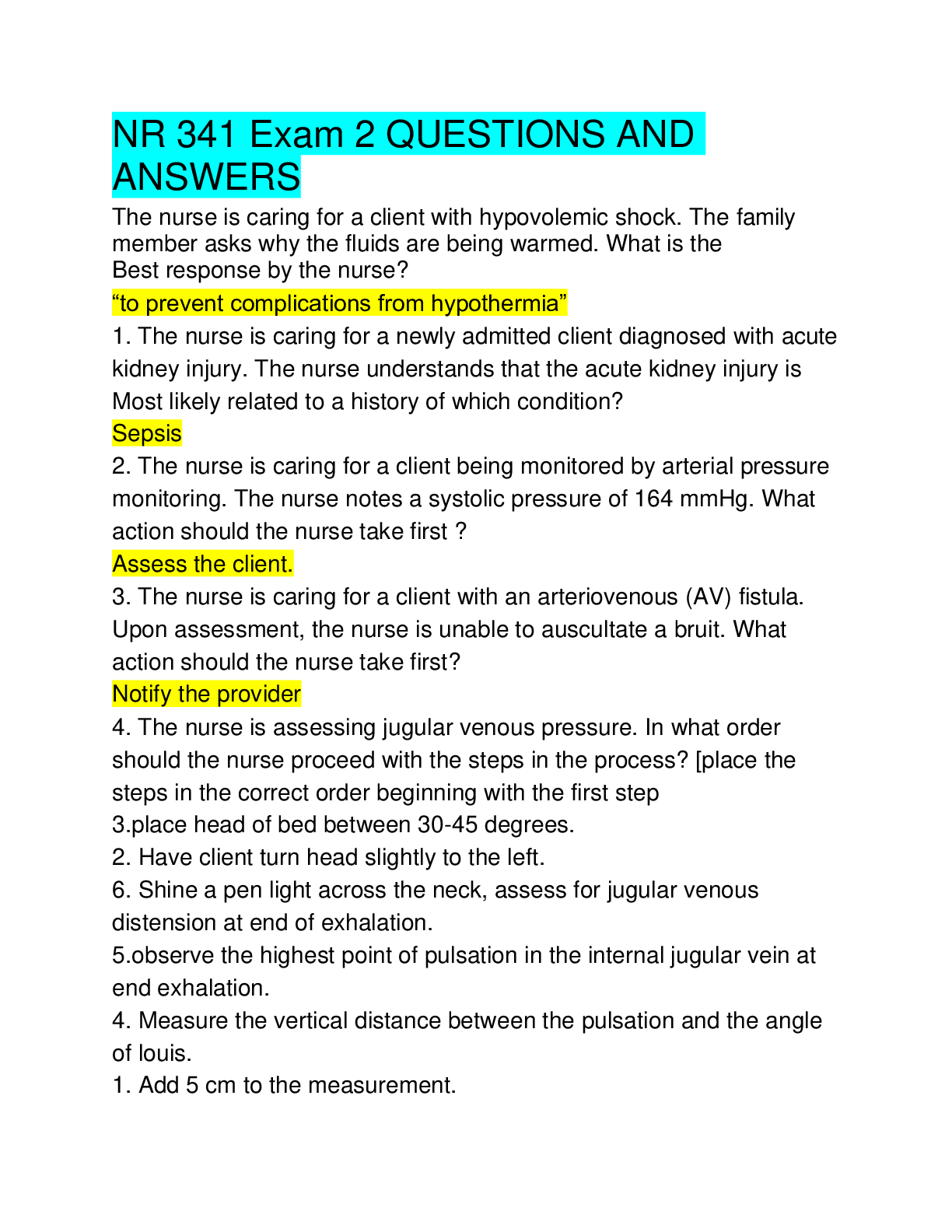NURSING 6005 CHAPTER 74: DRUG THERAPY OF GOUT | 2020/2021
Document Content and Description Below
NURSING 6005 CHAPTER 74: DRUG THERAPY OF GOUT Test Bank MULTIPLE CHOICE 1. A patient who is hospitalized for an acute gout attack has received several doses of hourly oral colchicine but still... reports moderate to severe pain. As the nurse prepares to administer the next dose, the patient begins vomiting. What will the nurse do? a. Contact the provider to discuss giving a lower dose of colchicine. b. Hold the medication and notify the prescriber. c. Explain that this is a common side effect that will soon stop. d. Request an order for an antiemetic so that the next dose of colchicine may be given. 2. A patient with gout who has increasingly frequent acute gouty attacks will begin receiving allopurinol (Zyloprim) and colchicine. The nurse will include which statement when teaching the patient about this drug regimen? a. “Allopurinol helps reduce the gastrointestinal side effects of colchicine.” b. “Allopurinol reduces the likelihood of gouty episodes that usually occur with initial colchicine therapy.” c. “The colchicine is given to enhance the effects of the allopurinol.” d. “You will take both drugs initially and then stop taking the colchicine.” 3. A patient has had three gouty flare-ups in the past year. Which drug class will the nurse expect the provider to order for this patient? a. Colchicine b. Glucocorticoids c. Nonsteroidal anti-inflammatory drugs d. Urate-lowering drugs 4. A patient who will begin taking colchicine for gout reports taking nonsteroidal anti-inflammatory drugs, simvastatin, amoxicillin, and digoxin. What will the nurse do? a. Contact the provider to discuss using a different antibiotic while this patient is taking colchicine. b. Notify the provider about the potential risk of muscle injury when simvastatin is taken with colchicine. c. Request an order for cardiorespiratory monitoring, because the patient is taking digoxin. d. Suggest that the nonsteroidal anti-inflammatory drugs (NSAIDs) be withdrawn during colchicine therapy. 5. A patient is being treated with warfarin (Coumadin) to prevent thrombus. The patient develops hyperuricemia, and the provider orders allopurinol (Zyloprim). The nurse will contact the provider to discuss _____ the _____ dose. a. increasing; allopurinol b. increasing; warfarin c. reducing; allopurinol d. reducing; warfarin 6. A patient with chronic gout is admitted to the hospital for treatment for an infection. The patient is receiving allopurinol and ampicillin. The nurse is preparing to administer medications and notes that the patient has a temperature of 101° F and a rash. What will the nurse do? a. Withhold the allopurinol and notify the prescriber of the drug reaction. b. Withhold the ampicillin and contact the provider to request a different antibiotic. c. Request an order for an antihistamine to minimize the drug side effects. d. Suggest giving a lower dose of the allopurinol while giving ampicillin. [Show More]
Last updated: 2 years ago
Preview 1 out of 4 pages

Buy this document to get the full access instantly
Instant Download Access after purchase
Buy NowInstant download
We Accept:

Reviews( 0 )
$11.50
Can't find what you want? Try our AI powered Search
Document information
Connected school, study & course
About the document
Uploaded On
Feb 17, 2021
Number of pages
4
Written in
Additional information
This document has been written for:
Uploaded
Feb 17, 2021
Downloads
0
Views
87













